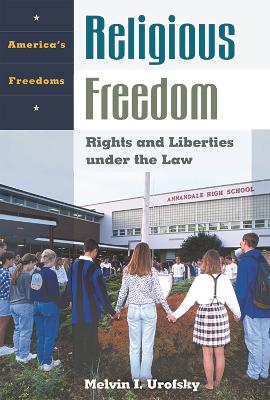America's Freedoms
1 total work
This volume provides in a single source a thorough grounding in the origin, development, and current controversies surrounding the free practice of religion.
The first boatloads of European settlers did not come to America advocating religious tolerance. They came seeking the freedom to practice their own religion. Other sects, they believed, were wrong at best and, at worst, not to be tolerated.
The question of what constitutes "legitimate," constitutionally protected religious practice has been debated ever since. Does it include the use of peyote? Polygamy? Refusing medical care for a sick child? Freedom of Religion follows the evolving understanding of the concept of religious freedom from Great Britain to the New World, through hundreds of U.S. courtrooms, to the volatile modern-day issues of school prayer and faith-based initiatives. The thorough, responsible, and cool-headed analysis presented here offers readers a solid grounding in the constitutional issues behind the headlines.
